| Teacher: Rusty Kennedy Series: Acts |
Rusty's Notes | |
GROWTH AND PERSECUTION IN ICONIUM
- As the blood dries on their backs, Paul and Barnabas travel 90 miles southeast to the frontier town of Iconium. (still modern Turkey).
- This is roughly a five-day walk.
- The two men take the Roman military road called the Via Sebaste (Sebastian Way), which will eventually lead them to Lystra and Derbe.[1]
- The Via Sebaste was built under Augustus in 6 BC. It connected six military colonies, including Antioch of Psidia.
- Greek city that speaks Greek & Phrygian.
- Some Romans had begun to settle here.
- Faith is not based on miracles.
- Miracles support faith.
- As the apostles continued their witness, the city became more and more polarized into those who supported them and those who opposed them.
- It is noteworthy that Luke used the term “apostle” here to refer to Paul and Barnabas.
- Here and 14:14 are the only places where he applied the term to anyone other than the Twelve disciples.[2]
- This was more a mob mentality rather than an official city decision by authorities like in Antioch.
- Another “church” was started in Iconium.
MISTAKEN FOR GODS IN LYSTRA
- Paul and Barnabas take the Via Sebaste and travel eighteen miles southwest to a Roman colony called Lystra.
- Lystra is a very primitive town that is built on a small hill.
- The old Lyconian language is still spoken here, as well as Greek.
- Since Lystra is a Roman colony, the language of the courts and the Roman soldiers is Latin.
- There is no synagogue, indicating there are hardly any Jews present.
- There is an old legend that says that the Greek gods Zeus and Hermes once visited Lystra (as told by the poet, Ovid).
- They appeared as humans looking for a place to stay.
- After they were rejected by the people, an elderly couple took the gods into their home.
- The gods turned their home into a palace.
- That palace became the temple of Zeus.[3]
11 When the crowds saw what Paul had done, they shouted, saying in the Lycaonian language, “The gods have come down to us in human form!” 12 Barnabas they called Zeus, and Paul, Hermes (herald, messenger of the gods), because he was the chief speaker. 13 The priest of Zeus, whose temple was just outside the town, brought bulls and wreaths to the gates because he intended, with the crowds, to offer sacrifice.
14 The apostles Barnabas and Paul tore their robes when they heard this and rushed into the crowd, shouting: 15 “People! Why are you doing these things? We are people also, just like you, and we are proclaiming good news to you, that you turn from these worthless things to the living God, who made the heaven, the earth, the sea, and everything in them. 16 In past generations he allowed all the nations to go their own way, 17 although he did not leave himself without a witness, since he did what is good by giving you rain from heaven and fruitful seasons and filling you with food and your hearts with joy.” 18 Even though they said these things, they barely stopped the crowds from sacrificing to them.
19 Some Jews came from Antioch and Iconium, and when they won over the crowds, they stoned Paul and dragged him out of the city, thinking he was dead.
- 2 Corinthians 11:24-25 - Five times I received the forty lashes minus one from the Jews. 25 Three times I was beaten with rods. Once I received a stoning. Three times I was shipwrecked. I have spent a night and a day in the open sea.[4]
- Timothy being one of those who watched and gathered.
- 2 Timothy 3:10-11 - But you have followed my teaching, conduct, purpose, faith, patience, love, and endurance, 11 along with the persecutions and sufferings that came to me in Antioch, Iconium, and Lystra. What persecutions I endured—and yet the Lord rescued me from them all.[5]
- Timothy’s faith came through his mother Eunice and his Grandmother, Lois.
- 2 Timothy 1:5 - I recall your sincere faith that first lived in your grandmother Lois and in your mother Eunice and now, I am convinced, is in you also. [6]
- These women are both Jews but Timothy’s Dad is Greek.
- Acts 16:1 - Paul went on to Derbe and Lystra, where there was a disciple named Timothy, the son of a believing Jewish woman, but his father was a Greek. [7]
- Paul was miraculously healed but deeply scarred.
- Galatians 6:17 - From now on, let no one cause me trouble, because I bear on my body the marks of Jesus.[8]
- If the Bible says, “the thief comes to kill, steal and destroy.”, it doesn’t matter if it is referring to the Pharisees or the evil one.
- The intent is to “steal, kill and destroy” with the root of that evil coming from the evil one.
- Paul is doing all things good (sharing the Gospel) but comes to the edge of death.
- Miraculously he survives… but the scars remain.
- Ever been there?
- Do you have scars as a result of your goodness?
- Maybe you’re still in the midst of being wounded.
- Maybe you’re in the midst of healing.
- Don’t ever give up on your faith, your calling… your goodness that comes from the Lord.
- Near death… miraculously healed… got up and went and got their “stuff” and then…
- Another “church” was started in Lystra.
- The two apostles head 60 miles southeast to a tiny frontier town called Derbe.
CHURCH PLANTING
21 After they had preached the gospel in that town and made many disciples,
- A convert is made in the town whose name is Gaius. (mentioned in Acts 20:4)
- Another “church” was started in Derbe.
- After preaching the gospel in Derbe, Paul and Barnabas retrace their steps.
- Despite the fact that they have been driven out of these cities.
- In each city, they meet with the church briefly to strengthen, encourage, and warn them of the trials that lie ahead.
- After prayer and fasting, the apostles identify the older men in each church that have matured the most.
- They acknowledge these men as “elders.”
- After commending each church to the Lord Jesus Christ, Paul and Barnabas depart.
- If we take into account their travel time, Paul and Barnabas spend only three to five months planting each Galatian church.
- This is a pattern that holds throughout Paul’s entire ministry.
- He will spend a short amount of time laying a solid foundation for an infant church.
- Then he will abandon it for a long period of time without human headship or designated leadership.
- Two years will pass before Paul will return to see the Galatian believers.
- Most of the converts in South Galatia are heathen Gentiles.
- There are some God-fearers and some Jews among them.
- The new converts in South Galatia do not have any Bibles. The NT has not been written yet.
- Possibly a Jew in one of the four churches has one or two scrolls of some OT Book. But it is highly doubtful that any of the churches in South Galatia have a complete OT.
- Yet even if every convert had an entire Bible, it would profit them little. For only five to ten percent of the population in the Roman Empire are literate.
- Letter writers, stenographers, occasional poets, and legal scribes make up only four percent of the population at best.
- Those who can write become farsighted by the age of forty. Thus they will need a secretary that serves as a professional scribe to pen their letters.
- For this reason, Paul needed a scribe to write his epistles (e.g., Romans 16: 22). Yet with his own hand he would sign the last part of each letter to confirm its authenticity (Galatians 6: 11; 2 Thessalonians 3: 17; 1 Corinthians 16: 21).
- The average life expectancy for a male is 45. The average life expectancy for a female is 38. (Of all humans born in the Empire, half die before age five.)
- Women usually marry in their early teens and raise families until they have passed child-bearing age. Very little birth control is practiced.
- Twenty-five percent of babies do not survive their first year.
- Half do not live past the age of ten. Three of every ten Jewish children die before the age of eighteen.
- Now 49 AD
- Meanwhile, back in Rome, Emperor Claudius issues a decree expelling all the Jews from the “Eternal City” (Rome).
- According to the historian Seutonius, the Jews are rioting over their various views about Christ.
- Since Christianity is viewed as a sect of Judaism in the eyes of the Greeks and Romans, all Jews—including Christian and non-Christian—are forced to leave the city.
- Many of the banished Jews flee to the Greek city of Corinth.
- A Roman Jew named Aquila and his wife Priscilla are among them.
- Because Rome has expelled all Jews, Gentiles in all the Roman colonies throughout the Empire regard Jews with even greater suspicion and disfavor than they had before.
- For most of the population, first-century Galatia is a thankless, loveless, horrible place to live.
- This is the world into which two apostolic workers from Syrian Antioch come to establish the church of Jesus Christ.
- Keep in mind that these new Galatian churches are surrounded by Gentile immorality and idolatry. Also, there are Jews in their towns who hate the new faith.
- After their brief revisiting trip, the new Christians in Galatia will not see the hair of an apostle for almost two years.
- But the gospel that Paul and Barnabas preach will be rich and high enough to cause the Galatian churches to survive without any outside help.
- What Paul and Barnabas preach cause these once heathen, superstitious, selfish, miserable Gentiles to fall in love with one another, to sing, to smile, and to glow with the joy of Jesus Christ.
- Like the Twelve before them, they were called, trained, and sent.
- And they preach an indwelling Christ that will sustain them through the pressures of life.
- They eat together, work together, greet each other with a holy kiss, raise their children together, take care of one another, and bury one another.
[1] The Untold Story of the New Testament Church: An Extraordinary Gide to Understanding the New Testament, Frank Viola, Destiny Image Publishers, Inc., 2004. Chapter 9
[2] Polhill, J. B. (1992). Acts (Vol. 26, p. 311). Nashville: Broadman & Holman Publishers.
[3] The Untold Story of the New Testament Church: An Extraordinary Gide to Understanding the New Testament, Frank Viola, Destiny Image Publishers, Inc., 2004. Chapter 9
[4] Christian Standard Bible. (2017). (2 Co 11:24–25). Nashville, TN: Holman Bible Publishers.
[5] Christian Standard Bible. (2017). (2 Ti 3:10–11). Nashville, TN: Holman Bible Publishers.
[6] Christian Standard Bible. (2017). (2 Ti 1:5). Nashville, TN: Holman Bible Publishers.
[7] Christian Standard Bible. (2017). (Ac 16:1). Nashville, TN: Holman Bible Publishers.
[8] Christian Standard Bible. (2017). (Ga 6:17). Nashville, TN: Holman Bible Publishers.
[9] Christian Standard Bible. (2017). (Ac 14:1–28). Nashville, TN: Holman Bible Publishers.
[10] The Untold Story of the New Testament Church: An Extraordinary Gide to Understanding the New Testament, Frank Viola, Destiny Image Publishers, Inc., 2004. Chapter 9

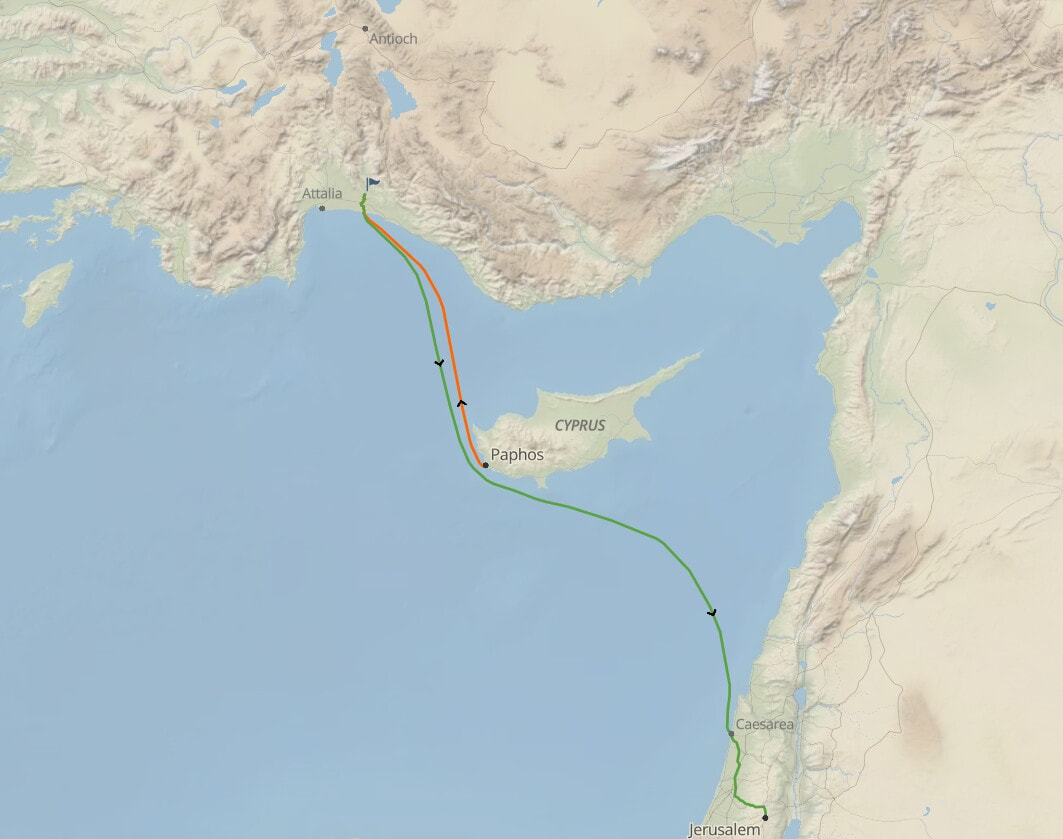
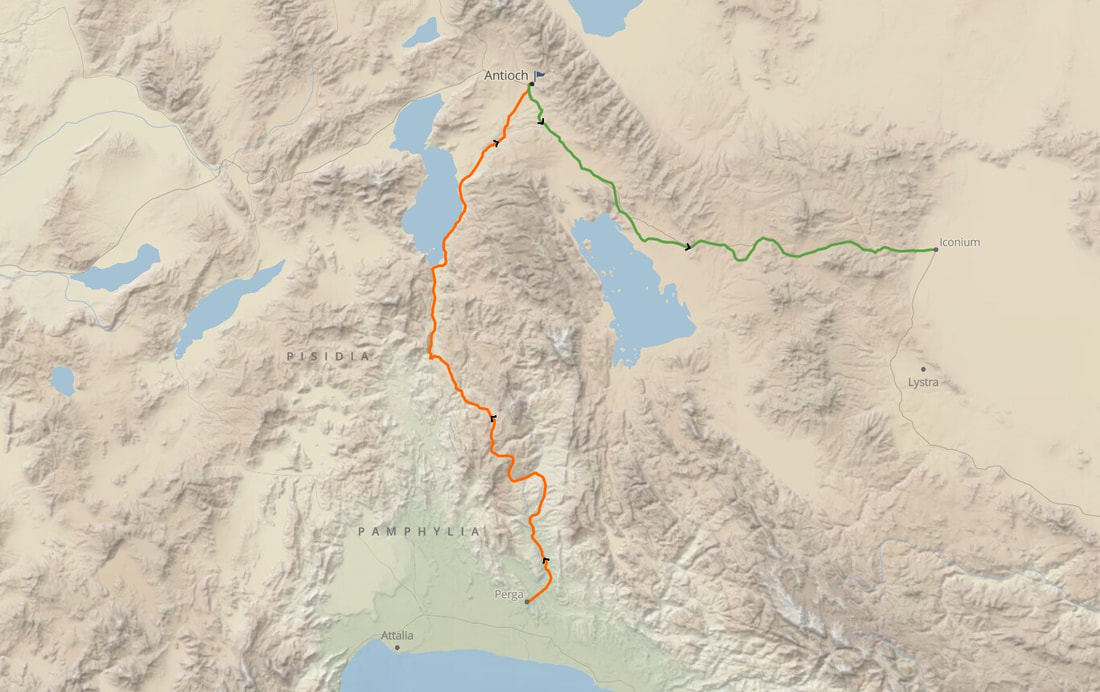
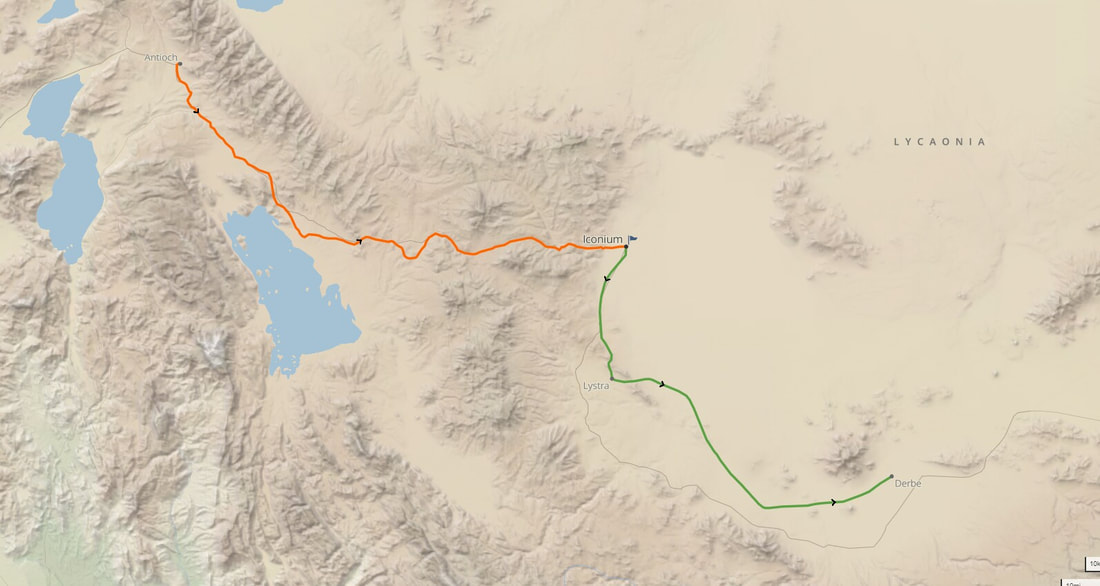
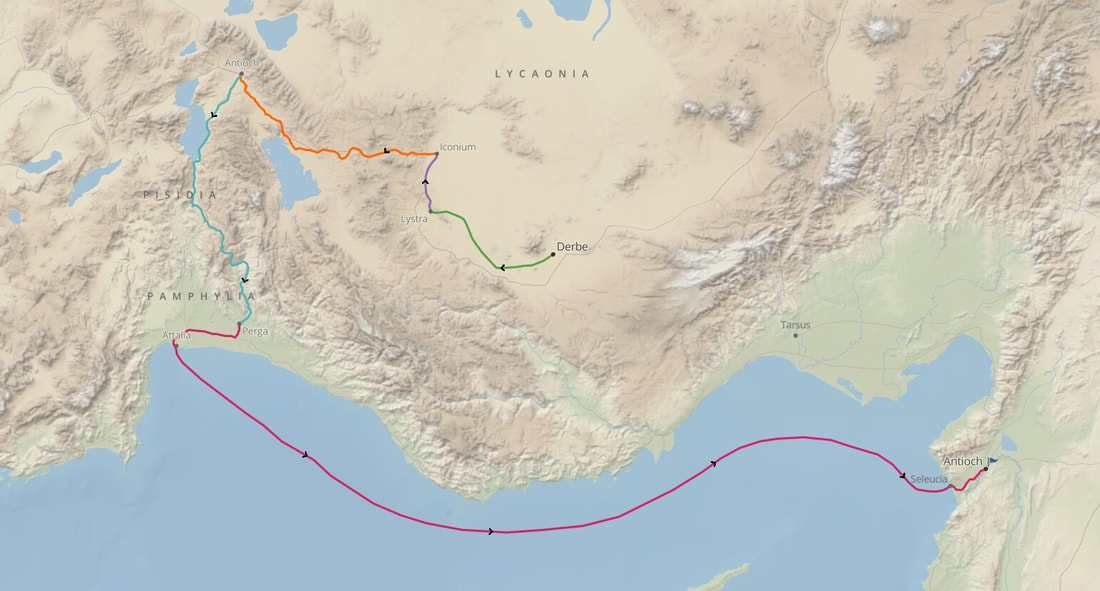
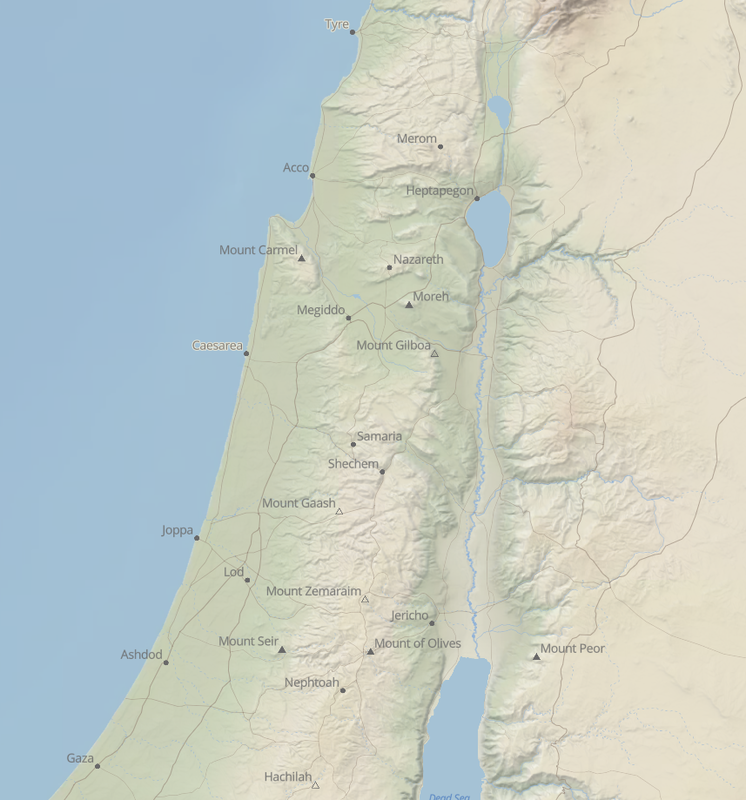


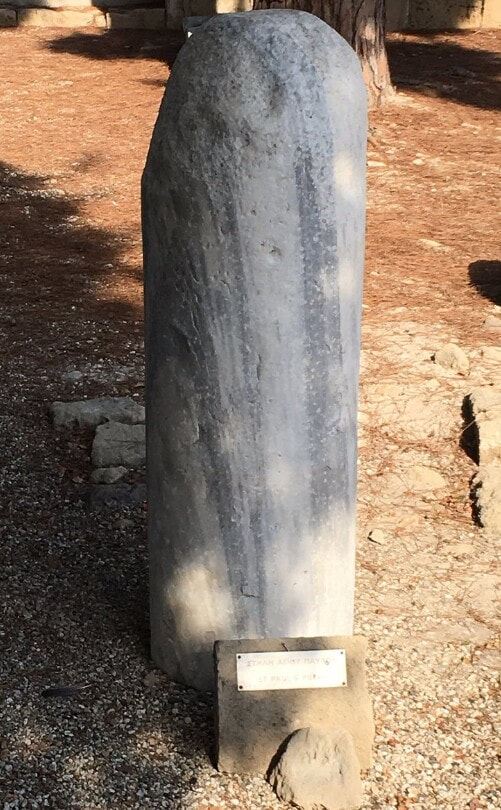
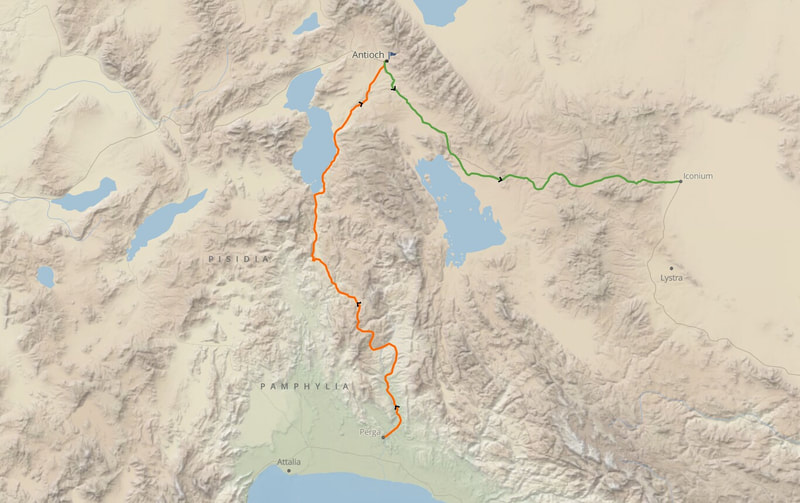
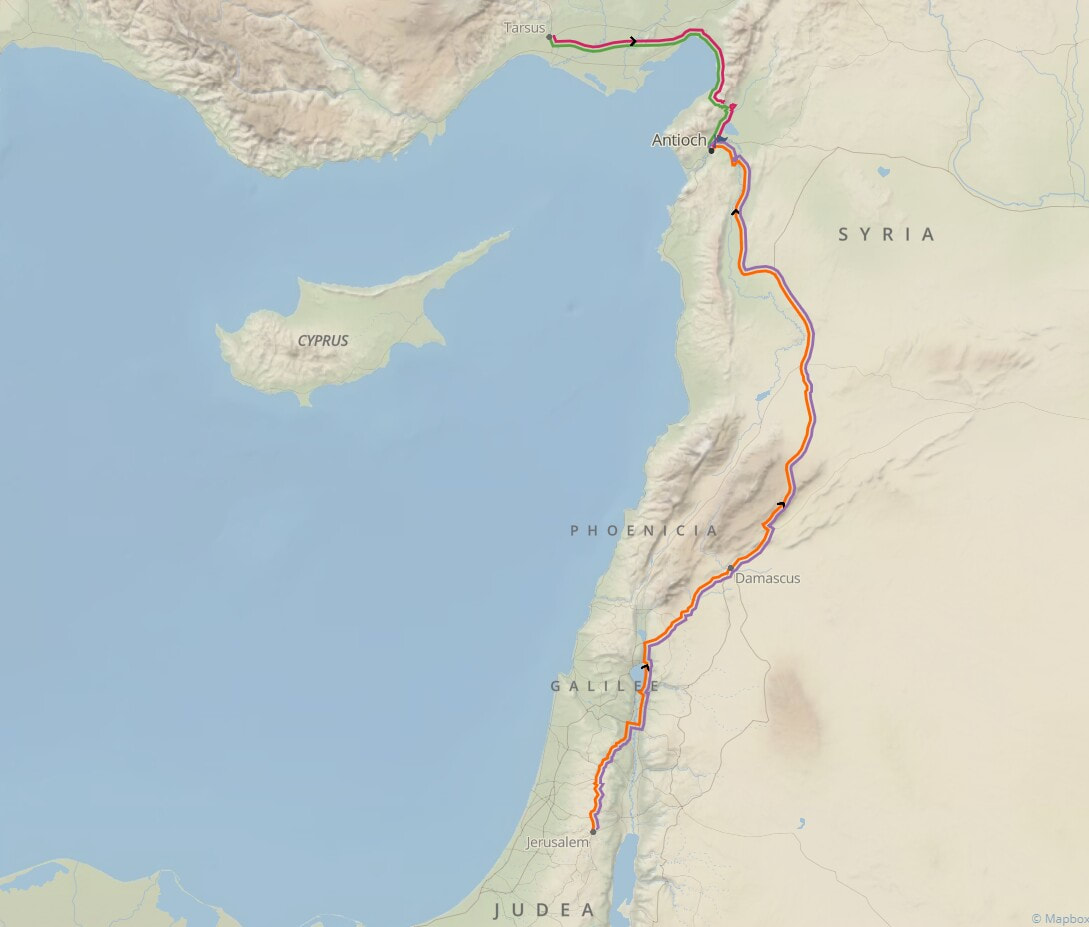
 RSS Feed
RSS Feed